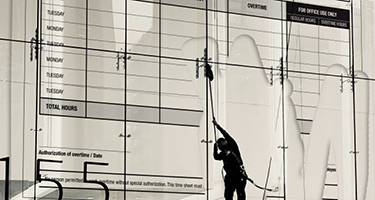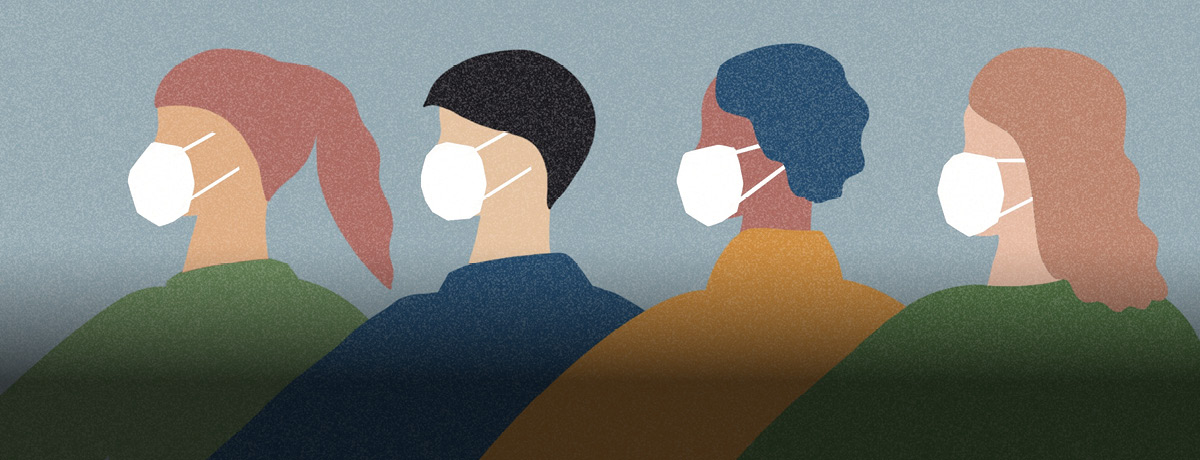The Family First Coronavirus Response Act (FFCRA) went into effect on April 1, 2020. The FFCRA includes the Emergency Paid Sick Leave Act and the Emergency Family and Medical Leave Expansion Act. Here are some frequently asked questions related to the FFCRA and your employment:
What is the effective date when employers must start complying with the FFCRA?
April 1, 2020. The provisions will be in place until Dec. 31, 2020, unless extended.
Which employees are covered by the FFCRA?
Employees that work for employers with 500 or fewer employees within the United States, at the time the employee takes leave. This includes full-time employees, part-time employees, employees on leave, and temporary employees (including individuals who are working as part of a temporary agency). It does not include individuals who are properly classified as independent contractors rather than employees.
What if my private sector employer has more than 500 employees? Does the FFCRA still apply?
No. Private sector employers are only required to comply with the FFCRA if they have fewer than 500 employees. However, the Americans with Disabilities Act and the Family and Medical Leave Act (FMLA) still apply.
Can certain small employers ask to be exempt from the FFCRA’s requirement?
Yes. If providing childcare-related paid sick leave or expanded family and medical leave at a private employer with fewer than 50 employees would jeopardize the viability of that business, then that small business can apply for an exemption.
How are hours worked counted for part-time employees for purposes of paid sick leave and expanded family medical leave?
Part-time employees are entitled to leave based on the average number of work hours in a two-week period. You calculate the hours of leave based on the number of hours the employee is regularly scheduled to work. If the normal hours scheduled are unknown, or if the part-time employee’s schedule varies, you should use a six-month average to calculate the average daily hours. Therefore, a part-time employee can take paid sick leave for this number of hours per day for up to a two-week period and may take expanded family and medical leave for the same number of hours per day up to ten additional weeks after the two weeks.
Are overtime hours included when calculating pay for employees on leave?
Under the Emergency Family and Medical Leave Expansion Act, the answer is yes. It requires employers to pay employees for hours the employee would have been normally scheduled to work even if that is more than 40 hours in a week.
Under the Emergency Paid Sick Leave Act, however, the employer is only required to pay up to 80 hours over a two week period for full-time employees.
Neither Act requires payment of an overtime premium for the overtime hours. In other words, no time-and-a-half.
How much will you get paid while when you are on leave under the FFCRA?
This is dependent on your normal work schedule and the reason you are taking leave.
Paid sick leave is at the employee’s regular rate of pay but capped: $511 per day and $5,110 in total for a use described in paragraph (1) are subject to a Federal, State, or local quarantine or isolation order related to COVID-19; (2) have been advised by a health care provider to self-quarantine due to concerns related to COVID-19; or (3) are experiencing symptoms of COVID-19 and are seeking a medical diagnosis.
For paid sick leave due to: (1) caring for an individual who is subject to a Federal, State, or local quarantine or isolation order related to COVID-19 or an individual who has been advised by a health care provider to self-quarantine due to concerns related to COVID-19; (2) caring for your child whose school or place of care is closed, or child care provider is unavailable, due to COVID-19 related reasons; or (3) experiencing any other substantially-similar condition that may arise you are entitled to pay at two-thirds of the greater of the amounts above. This pay is capped at $200 per day and $2,000 in over the two week period.
Under FMLA, the employer can provide the first 10 days of leave unpaid, then future absences beyond the 10-days must be paid at two-thirds the employee’s regular rate of pay. The FFCRA caps the pay at $200 a day and $10,000 in total. If the first 10 days are unpaid, an employee may elect to substitute any accrued vacation leave, personal leave, or medical/sick leave for the unpaid leave.
Can an employer deny an employee paid sick leave if the employer gave the employee paid sick leave prior to April 1, 2020 (the date the FFCRA went into effect)?
No. The employer must still adhere to the FFCRA’s requirements regardless of whether it provided paid sick leave prior to April 1, 2020, and regardless of the reason the paid sick leave was provided.
How long do I have to be employed to qualify for paid under the FFCRA family and leave expansion?
You must be employed for 30 calendar days immediately prior to the date your leave would begin.
What documentation must an employee provide to an employer to get paid sick leave or expanded family and medical leave?
An employer can require that you provide support of your expanded family, and medical leave is taken to care for your child whose school or place of care is closed/unavailable because of COVID-19-related concerns. This can include a notice of closing or unavailability from the child’s school or child care provider, a notice posted on a government, school, or daycare website, published in a newspaper or online article, or e-mailed to you from an employee or official of the school, place of care, or child care provider.
All existing certification requirements under the Family and Medical Leave Act remain in effect if you are taking leave for one of the existing qualifying reasons under the FMLA. By way of example, if taking leave beyond the two weeks of emergency paid sick leave because your medical condition for COVID-19-related reasons rises to the level of a serious health condition, you must continue to provide medical certifications under the FMLA.
When am I able to telework or work from home?
When your employer allows it. If your employer does not allow teleworking, then you must go to your place of work if you are an essential business. Your employer is not required to allow teleworking.
If you are unable to telework, are you entitled to paid sick leave or expanded family and medical leave?
Yes. If your employer allows teleworking but you are unable to telework for one of the qualifying reasons for paid sick leave or family and medical leave listed in the question above, then you are entitled to the same provisions.
Mansell Law is an employment law firm with offices in Columbus, Ohio and New York, City. Contact us for questions or violations.

































